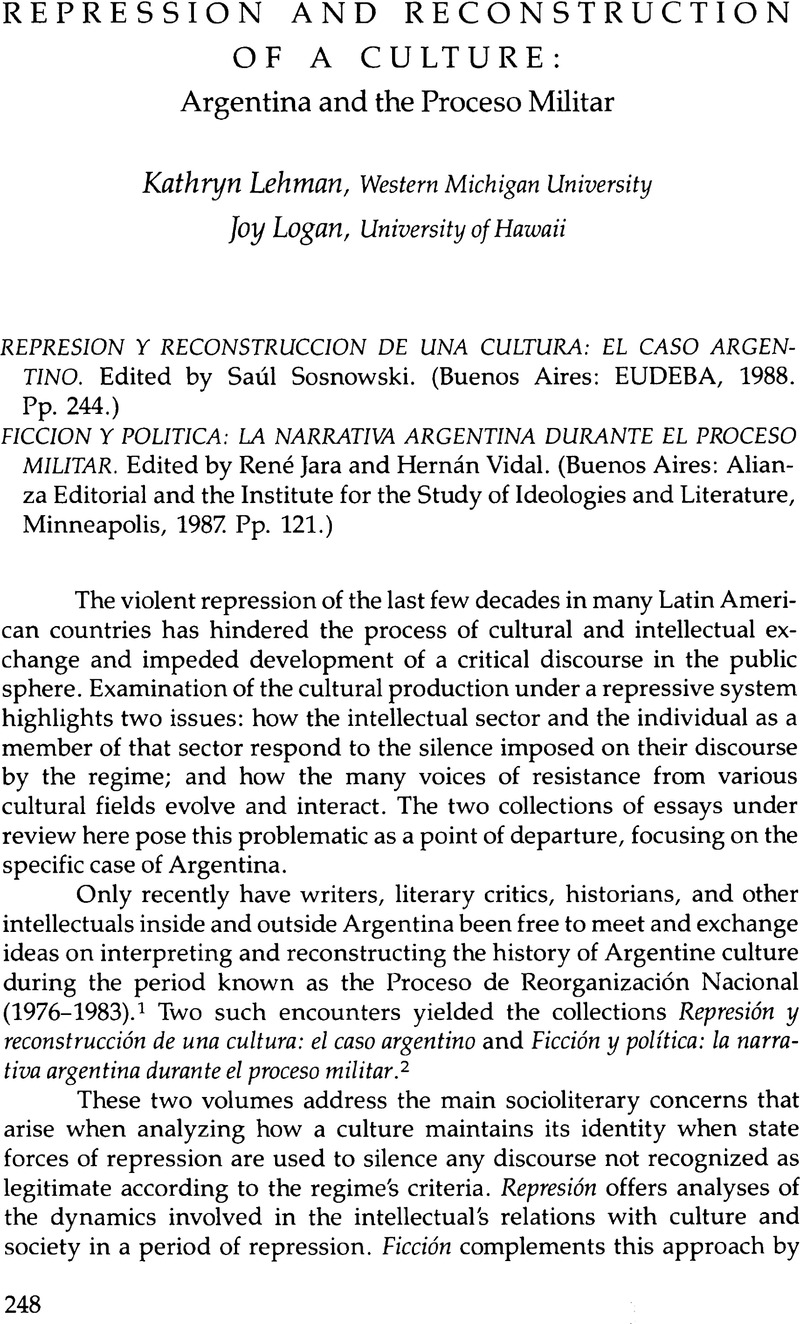No CrossRef data available.
Published online by Cambridge University Press: 12 October 2022

1. The military junta under General Jorge Rafael Videla, which overthrew the government of Isabel Perón on 24 March 1976, planned a total transformation of Argentine society to be called the Proceso de Reorganización Nacional, a name historically associated with the generation of 1837. “Proceso” came to be used as a shorthand reference to the free-market economic policies instituted by José Martínez de Hoz, the finance minister whose unprecedented five-year tenure became a symbol of the entire era of the dictatorship from 1976 to 1983. See Juan E. Corradi, The Fitful Republic (Boulder, Colo.: Westview, 1985).
2. The conference from which the essays in Represión originated, which bore the same name as the book, took place in December 1984 at the University of Maryland; the collection was published in 1988. The studies prepared for Ficción were presented at the University of Minnesota in Minneapolis in March of 1986 and were published in 1987. A follow-up to the Maryland conference, entitled “Argentina: represión y reconstrucción de la cultura; segunda parte,” was held in Buenos Aires in August of 1986. As of July 1989, this group of contributions has not been published.
3. Luis Gregorich, “La literatura dividida,”Clarín, 29 Jan. 1981.
4. Julio Cortázar, “América Latina: exilio y literatura,” Eco no. 205 (Nov. 1978).
5. Liliana Heker, El Ornitorrinco, no. 7 (Jan.–Feb. 1980).
6. Sarlo here cites Raymond Williams, Marxism and Literature (New York: Oxford University Press, 1978).
7. Here Balderston quotes Leo Strauss, Persecution and the Art of Writing (Glencoe, Ill.: Free Press, 1952).
8. Ricardo Piglia, Respiración artificial (Buenos Aires: Pomaire, 1980).